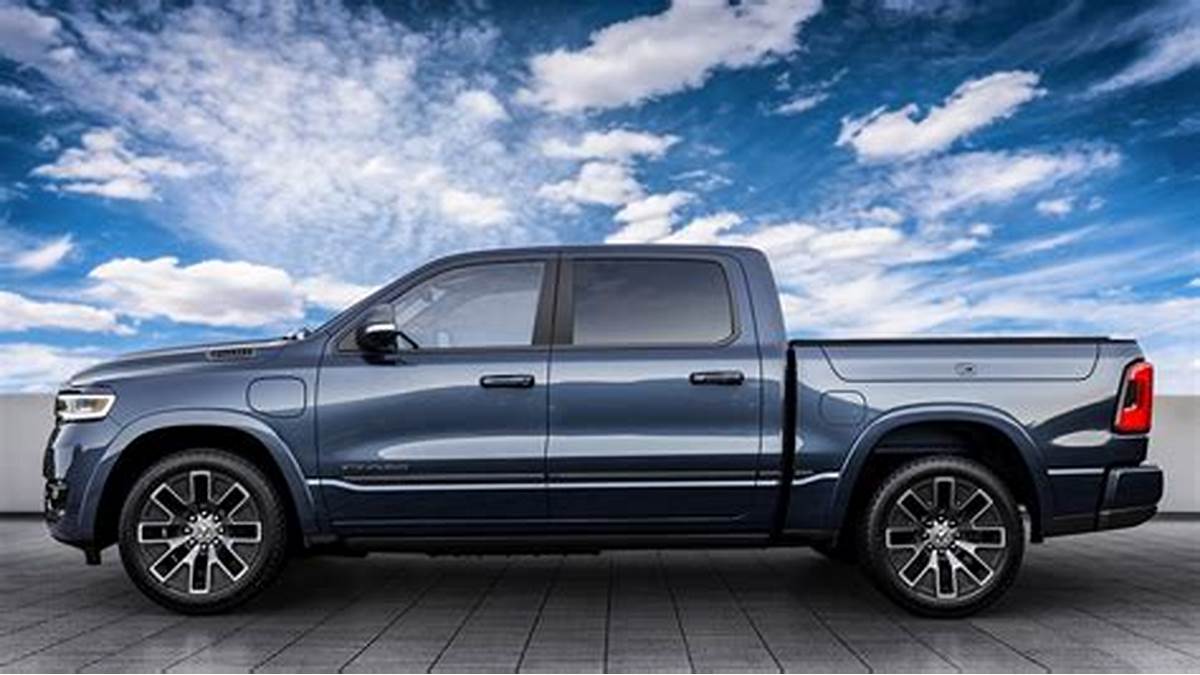Pickup trucks have long been the go-to choice for drivers needing power, utility, and versatility. From heavy-duty towing to off-road adventures, their capabilities are unmatched. However, one question that consistently arises is whether pickup trucks are economical in terms of fuel efficiency. As fuel costs remain a significant expense for vehicle owners, understanding the balance between functionality and operating costs is crucial.
This article delves into how pickup trucks measure up in fuel economy compared to other vehicles, examines factors influencing their efficiency, and explores advancements in technology aimed at improving mileage. Whether you’re considering buying a truck or looking to optimize your current ride, read on to learn how pickup trucks stack up in the fuel economy race.
Understanding Fuel Efficiency in Pickup Trucks

What Defines Fuel Economy?
Fuel efficiency refers to how far a vehicle can travel on a specific amount of fuel. Measured in miles per gallon (MPG), it varies significantly between vehicle types, with trucks typically consuming more fuel than smaller cars due to their size and power requirements.
Why Pickup Trucks Have Lower MPG
Pickup trucks are designed to handle heavy loads, towing, and rugged terrains. These functions demand larger engines and robust designs, which inherently reduce mileage. However, advancements in engineering and aerodynamics are narrowing this gap.
Comparing Pickup Trucks to Other Vehicles
Trucks vs. Sedans and SUVs
Sedans typically lead in fuel efficiency, with lightweight designs and smaller engines consuming less fuel. SUVs, though larger, often utilize advanced systems like hybrid engines to improve MPG. Pickup trucks, in contrast, prioritize torque and towing capacity, which usually leads to lower fuel economy.
Heavy-Duty Models vs. Mid-Size Options
Heavy-duty pickup trucks, built for maximum towing and payload, often have the lowest MPG ratings. Mid-size trucks, however, offer a more balanced approach, providing decent fuel efficiency while retaining much of the utility drivers seek.
Factors Impacting Fuel Economy in Pickup Trucks
Weight and Payload
The weight of the truck and its cargo significantly affects fuel consumption. A fully loaded truck requires more power to move, reducing efficiency. Drivers can improve mileage by minimizing unnecessary cargo.
Engine Size and Configuration
Larger engines deliver more power but consume more fuel. Diesel engines, while less common in smaller vehicles, are popular in trucks for their superior torque and often better fuel efficiency compared to gasoline engines.
Aerodynamics and Design
Pickup trucks generally have boxy shapes, which increase drag and reduce efficiency. Newer models are incorporating sleeker designs and aerodynamic features to counteract this.
Technology Improving Pickup Truck Fuel Efficiency

Hybrid and Electric Options
Manufacturers are increasingly introducing hybrid and electric pickup trucks to meet consumer demand for better fuel economy. These trucks offer substantial savings at the pump and reduce environmental impact.
Cylinder Deactivation Systems
Some modern trucks use cylinder deactivation, shutting off certain cylinders when full power isn’t needed. This technology improves MPG during light-load or highway driving.
Advanced Transmissions
The latest automatic transmissions, often with eight or more gears, optimize power delivery and fuel consumption. These systems help engines run at ideal speeds, improving efficiency.
Tips to Maximize Fuel Efficiency in Pickup Trucks
Maintain Proper Tire Pressure
Underinflated tires increase rolling resistance, requiring more energy to move the truck. Regularly checking and maintaining proper tire pressure enhances both safety and mileage.
Limit Idle Time
Prolonged idling wastes fuel. Modern trucks often come with start-stop technology, which automatically shuts off the engine when idle, saving fuel during stops.
Use Cruise Control
On long highway drives, cruise control helps maintain a consistent speed, which reduces fuel consumption compared to frequent acceleration and deceleration.
Optimize Driving Habits
Aggressive driving, such as rapid acceleration and hard braking, significantly lowers fuel efficiency. Smooth and steady driving is key to maximizing MPG.
Are Diesel Trucks More Economical?

Diesel Engines vs. Gasoline
Diesel engines generally offer better fuel economy and greater torque than gasoline engines, making them ideal for heavy-duty tasks. However, they often come with higher upfront costs and maintenance expenses.
Emissions and Environmental Impact
While diesel engines are efficient, they emit more nitrogen oxides and particulates than gasoline engines. Advances in clean diesel technology are helping reduce these emissions.
The Role of Lightweight Materials
Aluminum and Composite Construction
Many manufacturers are replacing traditional steel with aluminum and composite materials to reduce truck weight. Lighter trucks require less energy to move, improving fuel efficiency without sacrificing strength.
Benefits Beyond Mileage
Lightweight construction not only enhances MPG but also improves acceleration and handling. This makes trucks more enjoyable and practical to drive in various conditions.
Evaluating Fuel Costs for Long-Term Ownership
Upfront Price vs. Operating Costs
Trucks often have higher purchase prices than sedans or SUVs. However, for those using their trucks for work or frequent hauling, the added utility can offset higher fuel costs.
Resale Value Considerations
Fuel-efficient trucks tend to retain higher resale values, as buyers increasingly prioritize MPG. Investing in a model with better efficiency can pay off when it’s time to upgrade.
Electric Pickup Trucks: A Game-Changer?
Benefits of Going Electric
Electric pickup trucks offer zero emissions and significantly lower fueling costs compared to traditional engines. As charging infrastructure expands, they are becoming a viable option for more drivers.
Current Limitations
While electric trucks promise impressive efficiency, challenges like limited towing range and higher initial costs remain. Ongoing advancements are addressing these concerns.
Popular Fuel-Efficient Pickup Models
Ford F-150 Hybrid
The Ford F-150 hybrid combines power and fuel economy, offering impressive towing capabilities with enhanced MPG. Its innovative features appeal to both work and leisure drivers.
Toyota Tacoma
Known for reliability, the Toyota Tacoma delivers competitive mileage for a mid-size truck. Its efficient engine options make it a popular choice for light-duty tasks and everyday use.
Chevrolet Silverado Diesel
Equipped with a fuel-efficient diesel engine, the Silverado stands out for long-haul drivers needing both power and mileage.
The Future of Fuel Efficiency in Pickup Trucks

Renewable Fuels
Renewable diesel and biofuels are gaining traction as sustainable alternatives to traditional fuels. These options could make conventional trucks more eco-friendly.
Autonomous Driving Systems
Autonomous technologies, such as adaptive cruise control and route optimization, are set to improve fuel economy by reducing inefficient driving behaviors.
Conclusion
While pickup trucks may not rival compact cars in fuel efficiency, advancements in technology and design are closing the gap. Drivers can enjoy the utility and power of trucks while minimizing fuel costs through smart choices and practices. Whether you prioritize hybrid models, adopt efficient driving habits, or explore electric options, there are plenty of ways to make pickup truck ownership more economical and environmentally conscious.

Leave a Reply